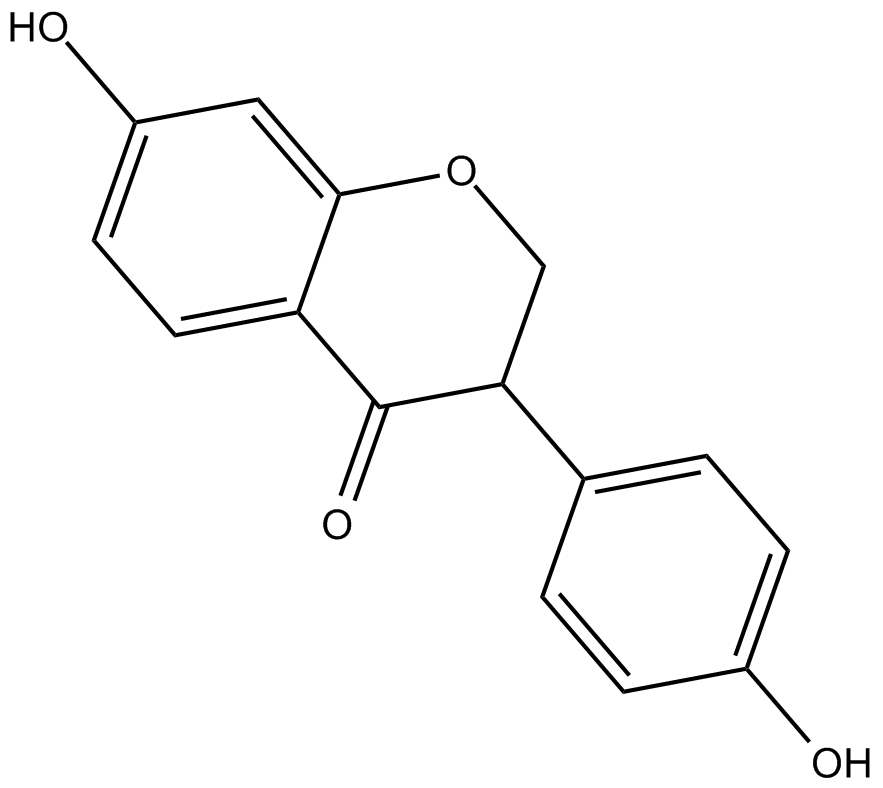Dihydrodaidzein (Synonyms: (±)-Dihydrodaidzein,4',7-dihydroxy Isoflavanone) |
| Catalog No.GC10663 |
estrogen receptor agonist
Products are for research use only. Not for human use. We do not sell to patients.

Cas No.: 17238-05-0
Sample solution is provided at 25 µL, 10mM.
Dihydrodaidzein, an active, estrogenic metabolite of daidzein in colonic bacteria, probably is further metabolized to various bioactive compounds including equol. As an estrogen receptor agonist, dihydrodaidzein, at micromolar concentrations, activates the estrogen receptor-dependent growth of breast cancer cells. Daidzein, an isoflavonoid phytoestrogenic compound, is found in soybeans, clover, kudzu, and other legumes.
In vitro: Prostatic fluid and plasma concentrations of dihydrodaidzein were sufficient to block the growth of benign human prostatic epithelial cells (PrEC). Dihydrodaidzein showed a significant inhibitory effect on the growth of prostate cancer cell line LNCaP. Additionally, dihydrodaidzein slightly triggered the apoptosis of PrEC. In addition to affecting apoptosis, dihydrodaidzein decreased proliferation, which was associated with the changes in cell cycle distribution and Caspase 3 activation [1].
In vivo: Male C57B1/6 wild type mice were administered orally with dihydrodaidzein at a dose of 25 mg/kg/day for 4 weeks. Compared to the control groups, the neointima of mice treated with dihydrodaidzein was thickened. In dihydrodaidzein-treated mice, the intimal thickness in the non-injured right iliac artery was not altered. Moreover, neointimal proliferation was selectively blocked by dihydrodaidzein via suppressing the migration and proliferation of vascular smooth muscle cell and dampening the endothelial apoptosis [2].
References:
[1]. Hedlund, T., Bokhoven, A., Johannes, W., Nordeen, S., & Ogden, L. Prostatic fluid concentrations of isoflavonoids in soy consumers are sufficient to inhibit growth of benign and malignant prostatic epithelial cells in vitro. The Prostate. 2006; 66(5): 557-566.
[2]. Shen, J., White, M., Husband, A., Hambly, B., & Bao, S. Phytoestrogen derivatives differentially inhibit arterial neointimal proliferation in a mouse model. European Journal of Pharmacology. 2006; 548(1-3): 123-128.
Average Rating: 5 (Based on Reviews and 31 reference(s) in Google Scholar.)
GLPBIO products are for RESEARCH USE ONLY. Please make sure your review or question is research based.
Required fields are marked with *




















